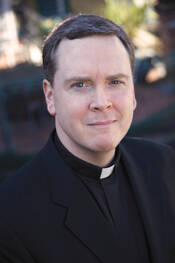What could we possibly need to hear about the 2012 election that we haven’t heard already? Most of us are already in full flight from the verbal tsunami rushing the shores of our various, ever-present screens. And yet, one of the paradoxical features of the information age is that voters have rather little information about what is most important and very little detailed information even about what isn’t. The candidates’ own ads and stump speeches are designed to conceal just as much as they disclose; the masters of modern political “messaging” give pride of place to consistency (read: predictable; see also: boring). Neither is the secular media much help. The blathering cauldron of cable news stews and shrinks our brains into partisan bite-sized pieces, only to serve them up on a platter for advertisers. It’s too much and yet too little.
All that is to say that it’s understandable if you are asking yourself right now whether you really need to read anything more about U.S. politics. With apologies to your beleaguered attention span, we here at America think that you do and that your efforts will be rewarded in the present case. In this issue we have one question in mind: what important questions still need to be asked? Crazy as it seems, there are quite a few. First off, we decided to talk with the pair of Catholics running for vice president. We asked each of them the same five questions about faith and politics. We leave it to you to judge whether they answered the questions fully. One exegetical hint: the most interesting bits are between the lines.
Elsewhere in this issue, former Congressman James L. Oberstar talks about transportation, and Rick Ryscavage, S.J., looks at immigration policy. Robert Veatch, a Protestant and a professor at Georgetown University, looks at Obamacare from an interesting angle, suggesting ways in which we might avoid some of that law’s ethical pitfalls. Lastly, Meghan J. Clark examines the causal connection between economic disparities and the quality of public health, and Edward Michael Gomeau looks at how the Occupy movement is asking some really big questions about the future of democracy and capitalism.
Pretty good stuff. The last two pieces, Clark’s and Gomeau’s, are especially close to my heart because they are reminders that the “dreary choice” between the Republican and Democratic parties, as this week’s editorial puts it, is not the sum total of Christian political witness. Indeed, Catholic voters face a tough choice on Election Day. In a way, however, the political choices of faithful citizens should never be easy. Catholic social teaching is not the Democratic Party platform minus abortion rights. Nor is it the Republican Party platform plus economic justice. In fact, the moral and best parts of both platforms put together would not add up to Catholic social teaching. Why? Because Catholic social teaching transcends the shopworn categories of left, right and center.
Catholic teaching is far more radical than our secular politics, precisely because it is rooted in the Gospel, which is itself a call to radical discipleship and solidarity. It is safe to say that if, after an encounter with the Gospel, we find our ideological or partisan worldviews affirmed, then we have probably missed the point. We would also be one step closer to imagining the church in terms clumsily imported from our secular politics, categories that are foreign to the church’s intrinsic identity.
That is always dangerous. The church of Jesus Christ is not a polis; it is a sacrament. We are not the body politic; we are the body of Christ. Perhaps that is the most important thing to remember come November, the most helpful thing we can say to one another. I hesitate to suggest that what we need is more words; still, the right words are always welcome.








